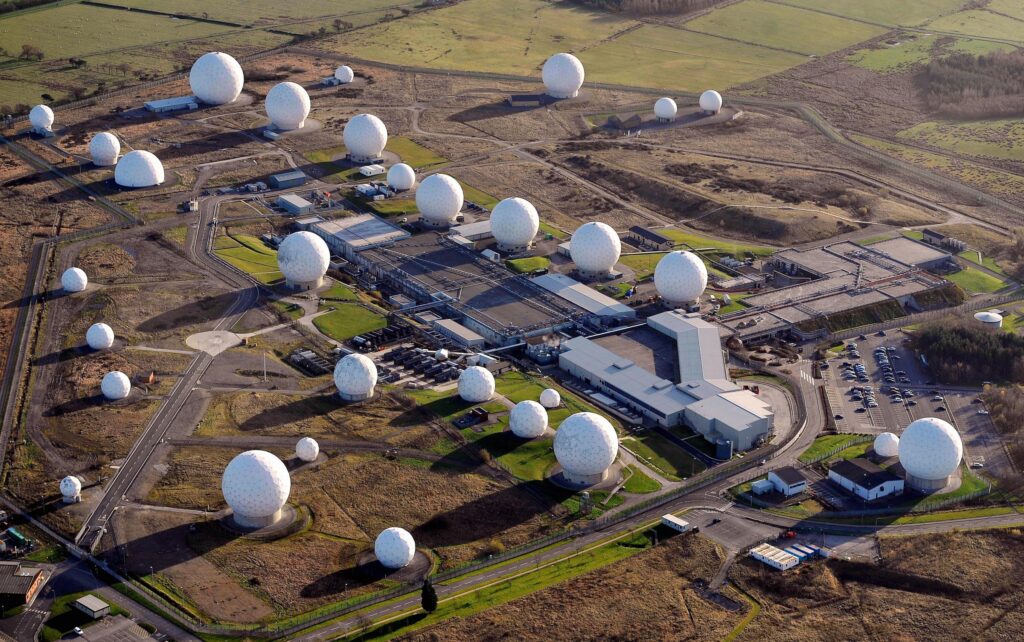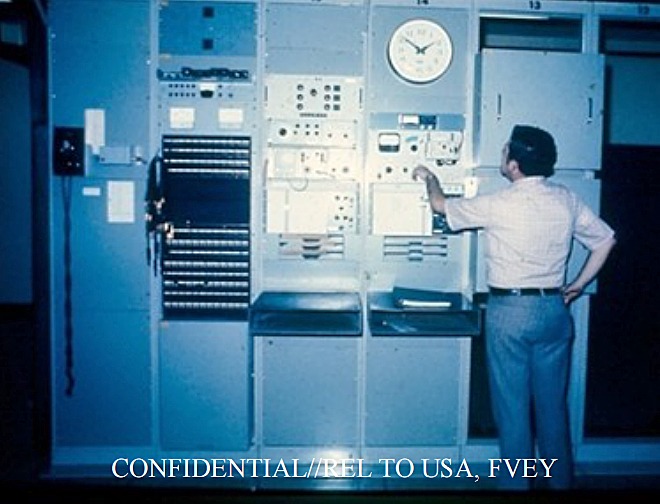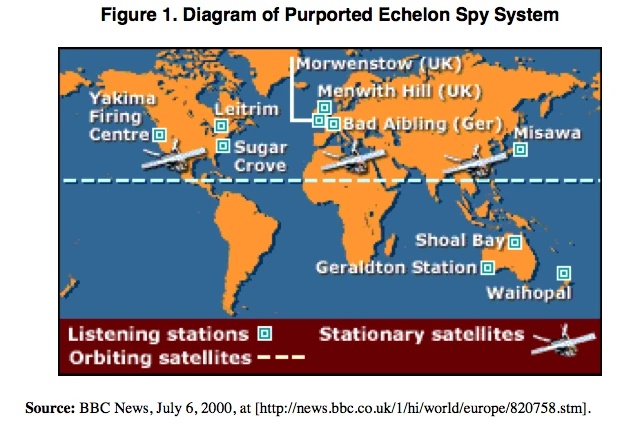
Nestled amidst the picturesque Yorkshire countryside in England lies a facility shrouded in mystery and intrigue—RAF Menwith Hill. Though its presence is conspicuous, its operations remain veiled in secrecy. Yet, beneath the surface lies a pivotal cog in the global surveillance machinery known as Echelon.
RAF Menwith Hill, established in the early 1950s, began as a Royal Air Force station. However, its transformation into a vital intelligence hub occurred during the Cold War era, where its strategic location and advanced capabilities became instrumental in surveilling Soviet communications.
A Nexus in the Echelon Network: Understanding Echelon
Echelon, a clandestine signals intelligence (SIGINT) network, represents a collaboration between several English-speaking nations, notably the United States, the United Kingdom, Canada, Australia, and New Zealand. Its primary objective: intercepting and analyzing global communications, ranging from diplomatic transmissions to private conversations.
The Birth of Echelon: Cold War Origins
Emerging amidst Cold War tensions, Echelon was conceived as a response to the growing need for monitoring Soviet communications.
The proliferation of telecommunication technologies presented an opportunity for intelligence agencies to eavesdrop on adversary communications, laying the groundwork for what would become the most extensive surveillance network in history.

RAF Menwith Hill, situated atop a hill in North Yorkshire, became the cornerstone of the Echelon network. Equipped with state-of-the-art surveillance technology, including a vast array of satellite dishes and radomes, the facility serves as a nerve center for intercepting and processing global communications.
The Architecture of Surveillance: Inside RAF Menwith Hill
While the exterior of RAF Menwith Hill may appear unassuming, its interior houses a sophisticated infrastructure dedicated to intercepting and analyzing vast quantities of data. Secure facilities, housing computer systems and intelligence analysts, work tirelessly to sift through intercepted communications in pursuit of actionable intelligence.

Satellite interception forms a cornerstone of RAF Menwith Hill’s surveillance capabilities. A network of satellite dishes, known colloquially as “the golf balls,” tracks and intercepts satellite communications traversing the globe. These intercepted signals are then relayed to processing centers within the facility for analysis.
The operational scope of Echelon extends far beyond military communications, encompassing diplomatic, commercial, and private exchanges. From political negotiations to corporate transactions, no communication is beyond the reach of Echelon’s surveillance apparatus. This pervasive monitoring has raised concerns regarding privacy rights and civil liberties.
The Controversy Surrounding Echelon: Privacy vs. Security
Echelon’s covert surveillance activities have not been without controversy. Critics argue that its indiscriminate interception of communications violates fundamental privacy rights and undermines democratic principles. Moreover, the lack of transparency surrounding Echelon’s operations has fueled speculation and mistrust.
In an era defined by rapid technological advancements and evolving security threats, Echelon has adapted to meet the challenges of the digital age. Enhanced cyber capabilities, coupled with advances in data analytics and artificial intelligence, have bolstered Echelon’s surveillance capabilities, enabling more efficient and targeted intelligence gathering.

In an increasingly interconnected world, the balance between security and privacy is a delicate one. While surveillance technologies like Echelon play a vital role in protecting national interests and thwarting security threats, they must be wielded responsibly and transparently. As we navigate the complexities of the digital age, it is imperative to uphold the principles of democracy, accountability, and respect for individual freedoms. Only through thoughtful deliberation and oversight can we ensure that the tools of surveillance are wielded judiciously in service of the greater good.
POPULAR TODAY
While the concept of parallel realities remains a subject of speculation and debate, the theoretical and observational evidence supporting it continues to grow.
